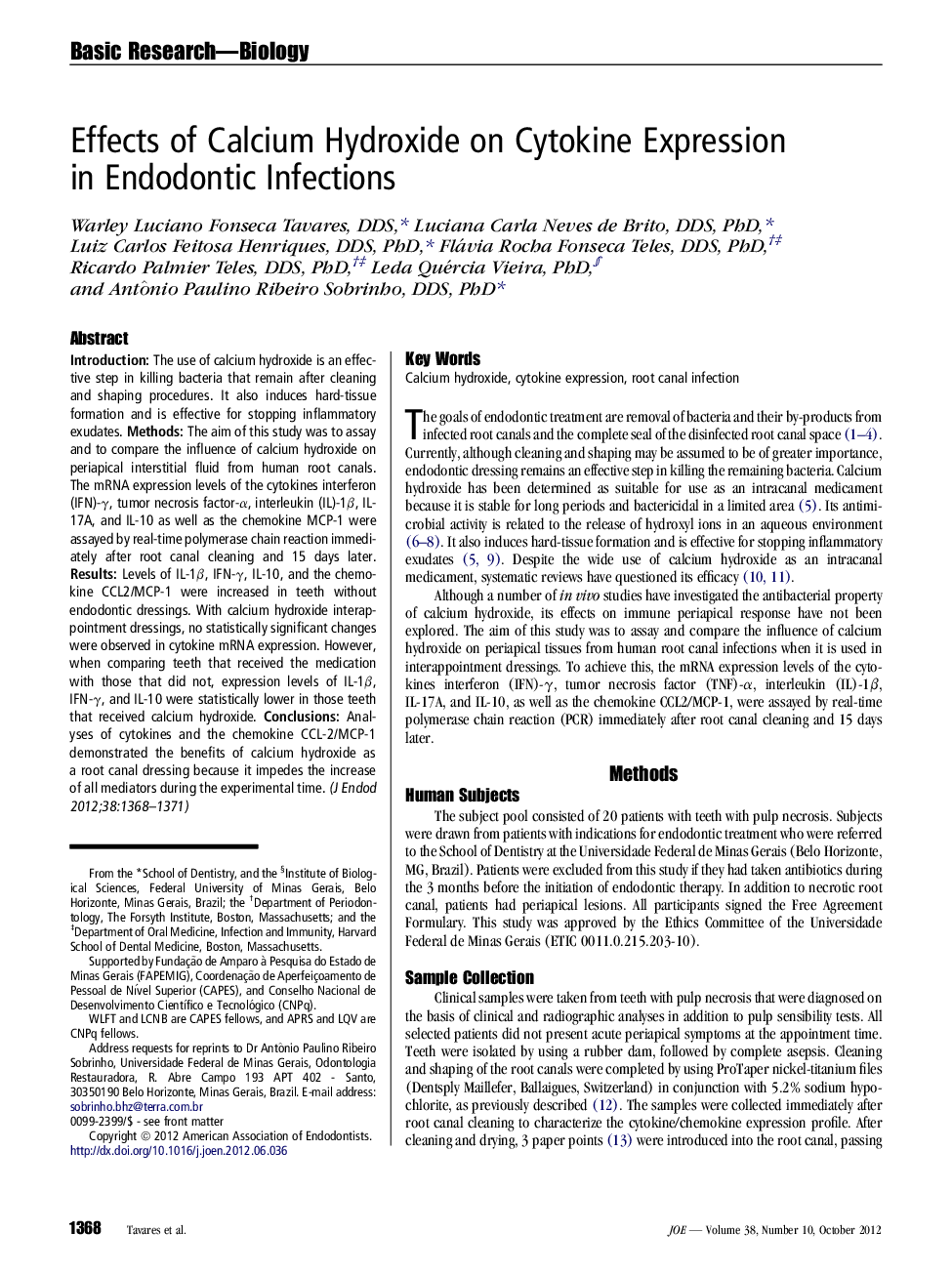| Article ID | Journal | Published Year | Pages | File Type |
|---|---|---|---|---|
| 3148832 | Journal of Endodontics | 2012 | 4 Pages |
IntroductionThe use of calcium hydroxide is an effective step in killing bacteria that remain after cleaning and shaping procedures. It also induces hard-tissue formation and is effective for stopping inflammatory exudates.MethodsThe aim of this study was to assay and to compare the influence of calcium hydroxide on periapical interstitial fluid from human root canals. The mRNA expression levels of the cytokines interferon (IFN)-γ, tumor necrosis factor-α, interleukin (IL)-1β, IL-17A, and IL-10 as well as the chemokine MCP-1 were assayed by real-time polymerase chain reaction immediately after root canal cleaning and 15 days later.ResultsLevels of IL-1β, IFN-γ, IL-10, and the chemokine CCL2/MCP-1 were increased in teeth without endodontic dressings. With calcium hydroxide interappointment dressings, no statistically significant changes were observed in cytokine mRNA expression. However, when comparing teeth that received the medication with those that did not, expression levels of IL-1β, IFN-γ, and IL-10 were statistically lower in those teeth that received calcium hydroxide.ConclusionsAnalyses of cytokines and the chemokine CCL-2/MCP-1 demonstrated the benefits of calcium hydroxide as a root canal dressing because it impedes the increase of all mediators during the experimental time.
